Class 8 Civics Chapter 10 Notes - Law and Social Justice
| Table of contents |

|
| Introduction |

|
| What is a Worker's Worth? |

|
| Enforcement of Safety Laws |

|
| New Laws to Protect the Environment |

|
| Environment as a Public Facility |

|
| Conclusion |

|
Introduction
Laws play a crucial role in safeguarding the rights and interests of workers, consumers, and producers. The primary goal of such laws is to ensure fairness in the market and prevent exploitation.
This chapter explores various laws related to workers’ rights, minimum wages, and the need for effective enforcement of these laws to achieve social justice.
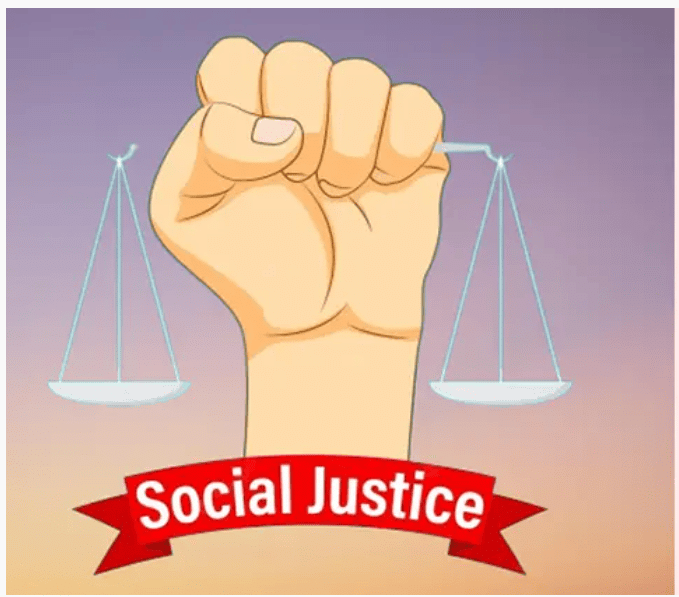
Importance of Law in Protecting Workers
In a market-driven economy, private companies, contractors, and businesspersons aim to maximize profits. This drive for profit can often lead to the exploitation of workers, particularly through the denial of fair wages. Laws like the Minimum Wages Act aim to prevent this exploitation by setting a minimum wage that employers must pay. Regular revision of minimum wages ensures workers are compensated fairly for their labor.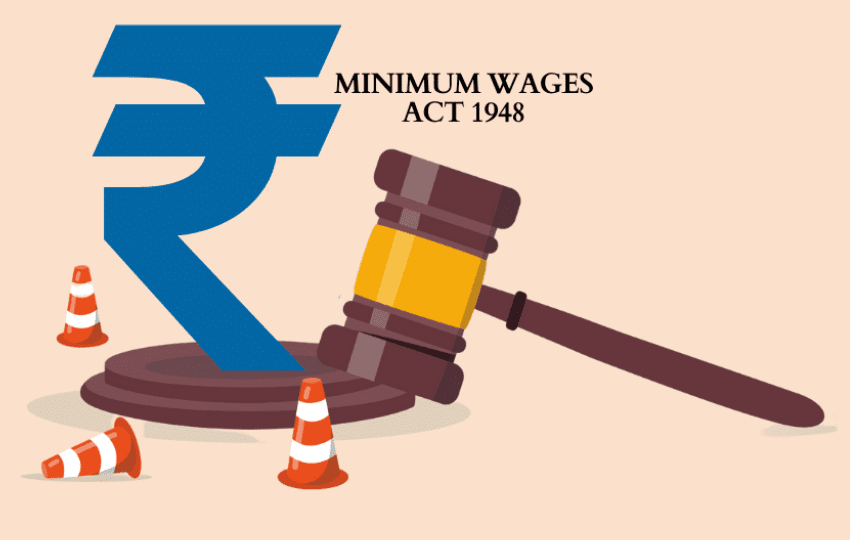
Key Points:
- Companies may exploit workers to reduce costs and maximize profit.
- Workers have limited bargaining power and may accept low wages due to economic need.
- The Minimum Wages Act ensures that workers are not paid below a legally defined minimum wage.
The Minimum Wages Act protects workers by ensuring they are paid a minimum wage, preventing employers from taking undue advantage of workers’ vulnerability. It is crucial for:
- Protecting workers from exploitation.
- Ensuring fair compensation for work done.
- Enabling workers to lead dignified lives
Laws Protecting Various Market Participants
To ensure fairness and prevent exploitation in the market, laws protect workers, producers, and consumers. These laws create a balanced relationship between these three parties.
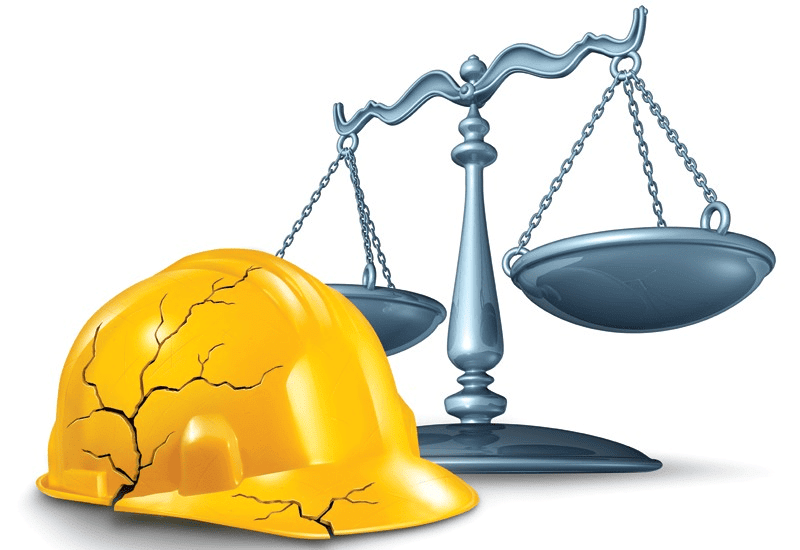
Important Laws and Their Purpose:
- Minimum Wages Act: Ensures that workers are paid at least the minimum wage, protecting their financial interests.
- Workplace Safety Laws: Require adequate safety measures such as alarm systems, emergency exits, and properly functioning machinery to prevent accidents.
- Product Quality Standards: Mandate that goods, such as electrical appliances and medicines, meet safety standards to protect consumers.
- Price Control Laws: Ensure that essential goods like sugar, kerosene, and food grains are sold at reasonable prices, protecting poor consumers.
- Environmental Laws: Prevent factories from polluting air or water, safeguarding public health.
- Child Labor Laws: Prohibit the employment of children below the age of 14 in hazardous jobs, protecting children’s rights.
- Worker Union Laws: Allow workers to form unions to collectively demand better wages and working conditions.

What is a Worker's Worth?
Foreign companies, such as Union Carbide, establish plants in India to take advantage of lower labor costs compared to countries like the U.S. This leads to significant savings on wages and additional expenses, such as worker housing.
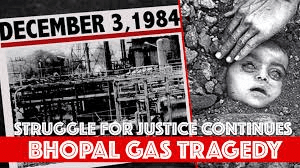
Reduction in Safety Measures: At the UC plant in Bhopal, safety measures were severely compromised. Safety devices were malfunctioning or inadequate, the work crew was reduced from 12 to 6 workers, safety training was cut from 6 months to 15 days, and the night-shift position was abolished.
Comparison with U.S. Plant: The West Virginia plant had advanced safety features, including computerized warning systems and emergency evacuation plans. In contrast, the Bhopal plant relied on manual gauges and human senses for detecting gas leaks and lacked effective emergency protocols.
Worker Replaceability: The perception of Indian workers as easily replaceable due to high unemployment rates leads to their exploitation. Workers may be forced to work in unsafe conditions because of economic desperation.
Continued Negligence: Despite the Bhopal disaster, safety issues persist in industries like construction and mining. Regular accidents occur due to ongoing neglect and disregard for safety regulations by employers.
Enforcement of Safety Laws
The government, as the lawmaker and enforcer, is responsible for implementing safety laws and upholding the Right to Life under Article 21 of the Constitution.
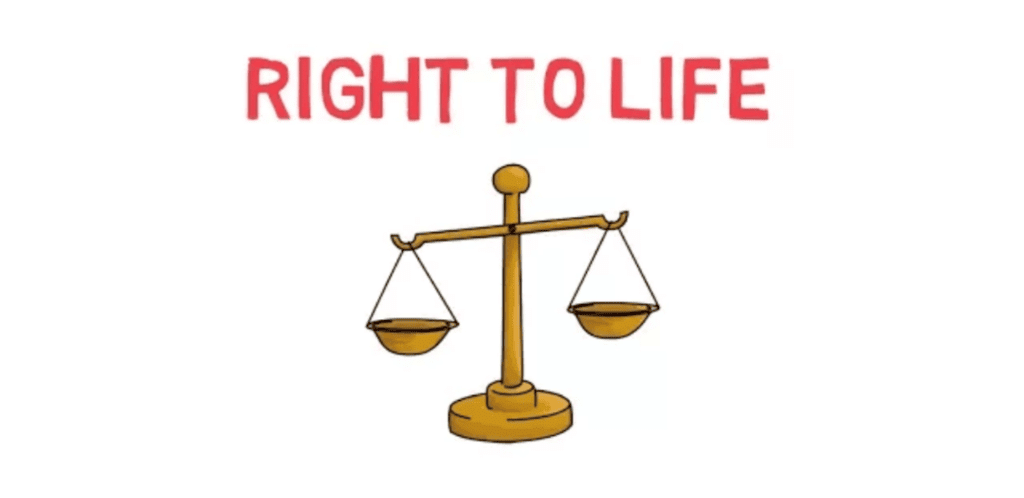
Lax Safety Laws: Indian safety laws were insufficiently stringent, and even these weak laws were poorly enforced.
Negligence in Regulation: Government officials failed to recognize the hazards associated with the UC plant and allowed it to be established in a densely populated area.
Ignoring Safety Concerns: Despite objections from municipal officials about the safety risks of the MIC production unit in 1978, the government prioritized the plant’s economic benefits over safety concerns and rejected calls for cleaner technology or safer procedures.
Approval of Unsafe Practices: Government inspectors continued to approve the plant’s procedures despite frequent incidents of leaks, indicating a disregard for safety and regulatory responsibilities.
Call for Stronger Laws: The failures in enforcing safety laws highlight the urgent need for stronger regulations and more effective enforcement to protect workers' rights and ensure safety in the face of increasing industrial activity.
New Laws to Protect the Environment
In 1984, India had minimal environmental protection laws and poor enforcement. The environment was considered a "free" resource, allowing industries to pollute air and water without restrictions, leading to widespread environmental degradation.
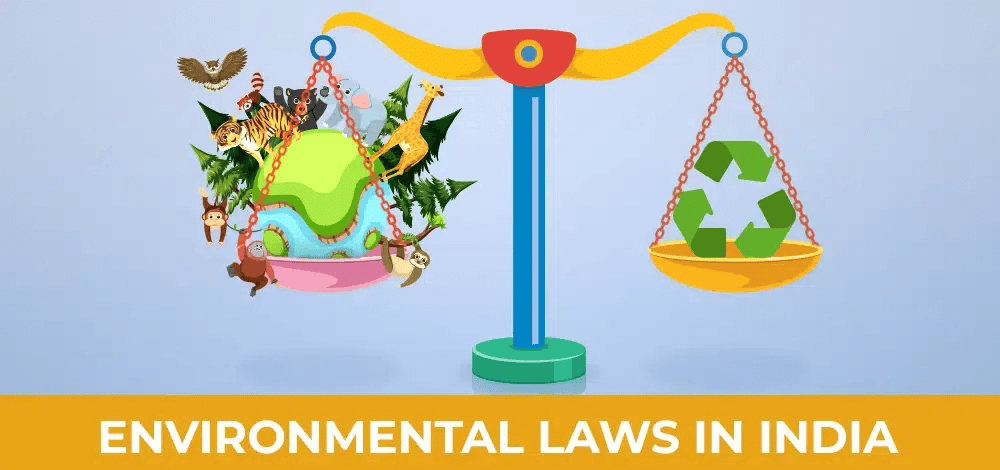
Health and Pollution Issues: The Bhopal disaster highlighted the severe impact of industrial pollution on public health, affecting thousands of people not directly involved with the factory.
Insufficient Coverage of Existing Laws: Existing laws were inadequate, covering only individual workers and failing to address broader environmental impacts from industrial accidents.
Response to Environmental Pressure: In the aftermath of the Bhopal disaster, new environmental laws were introduced, holding polluters accountable for environmental damage and emphasizing the protection of shared environmental resources.
Court Rulings: The judiciary reinforced the importance of environmental protection. The Supreme Court, in Subhash Kumar vs. State of Bihar (1991), declared that the Right to Life under Article 21 includes the right to pollution-free water and air.
- Regulatory Measures: The government is tasked with creating and enforcing laws to control pollution, clean up rivers, and impose substantial fines on polluters to safeguard the environment for current and future generations.
Environment as a Public Facility
Recent court orders have addressed environmental issues by directing industries in residential areas, such as those in Delhi, to close or relocate due to pollution.
Consequences of Relocation: While these measures addressed pollution problems, they also led to job losses for workers and forced relocations, creating new environmental issues in relocated areas.
Socioeconomic Disparities
Middle-Class vs. Poor: Research shows that increased environmental concern among the middle class often comes at the expense of the poor. Efforts to clean up slums or relocate factories can negatively impact low-income communities, who may face job losses and worsened living conditions.
Worker Safety Neglected: Despite growing environmental awareness, the safety and livelihoods of workers are frequently overlooked in these changes.
Solutions for Balanced Benefits
Transition to Cleaner Technologies: To benefit everyone, including workers and local communities, a gradual shift to cleaner technologies and processes in factories is necessary.
Government Role: The government should support factories in adopting cleaner practices and enforce penalties on polluters. This approach will help protect workers' livelihoods while ensuring a safe and healthy environment for surrounding communities.
Conclusion
- Importance of Laws: Laws are crucial in various settings, including markets, offices, and factories, to protect individuals from unfair practices.
- Unfair Practices by Private Entities: Private companies and contractors often prioritize profit, leading to low wages, child labor, poor working conditions, and environmental harm.
- Government’s Role: The government must regulate private enterprises by creating, enforcing, and upholding laws to prevent unfair practices and promote social justice. Effective legislation and enforcement are essential, as highlighted by the Bhopal gas tragedy, which underscored the dangers of weak and poorly enforced regulations.
- Public Advocacy: Public pressure plays a critical role in ensuring that both private companies and the government act in society’s best interests. Historical examples, such as environmental protection efforts, demonstrate how citizen advocacy can lead to significant legal changes.
- Extending Rights to Workers: The right to a healthy environment is now recognized as part of the Right to Life; similarly, there is a need for stronger advocacy to protect workers’ rights, including fair wages and safe working conditions.
- Call to Action: It is essential for both the government and the public to collaborate in strengthening laws and enforcement mechanisms to ensure that the Right to Life and social justice are upheld for everyone.
|
69 videos|556 docs|46 tests
|
FAQs on Class 8 Civics Chapter 10 Notes - Law and Social Justice
| 1. What factors contribute to determining a worker's worth in today's economy? |  |
| 2. How are safety laws enforced in the workplace? |  |
| 3. What are some recent laws aimed at protecting the environment? |  |
| 4. How is the environment considered a public facility? |  |
| 5. Why is social justice important in the context of labor and environmental laws? |  |
















